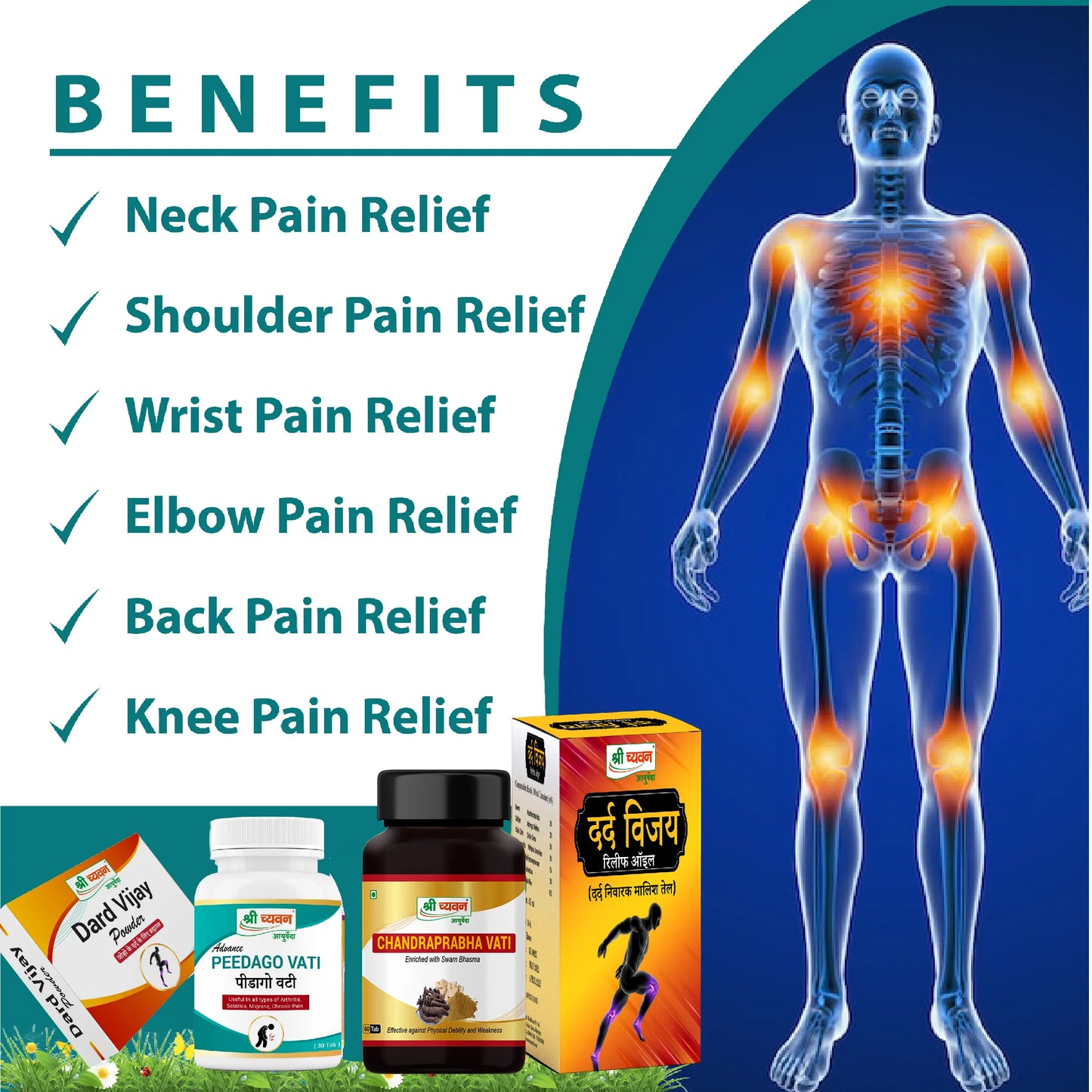The cold weather during winter can cause muscles to contract and stiffen, leading to increased joint pain. The reduced blood circulation to extremities can intensify discomfort, especially for those with existing joint issues like arthritis or fibromyalgia. Additionally, changes in atmospheric pressure can impact joints, resulting in heightened pain levels.
In winter, various types of joint and body pain can become more pronounced due to the cold weather. Here are some common types of pain that people might experience during the winter months:
Arthritis Pain:
-
Osteoarthritis: Cold weather can exacerbate osteoarthritis symptoms. Joints might feel stiffer, and movement can become more challenging due to decreased flexibility.
- Rheumatoid Arthritis: People with rheumatoid arthritis may experience increased joint stiffness and inflammation during colder months.
Muscle Stiffness:
-
General Muscle Stiffness: Cold temperatures can cause muscles to contract and become tighter, leading to increased stiffness and discomfort.
- Fibromyalgia: Those with fibromyalgia might experience intensified symptoms, including widespread muscle pain and tenderness, during winter.
Back Pain:
- Spinal Issues: Cold weather can contribute to increased back pain, especially for individuals with spinal issues like herniated discs or degenerative disc disease.
Neurological Pain:
- Nerve Pain: Conditions like sciatica or neuropathy might worsen in winter due to increased sensitivity to cold temperatures, leading to heightened nerve pain.
Pre-existing Conditions:
- Chronic Pain Conditions: Individuals with conditions like chronic fatigue syndrome or lupus may experience exacerbated symptoms during colder months.
Additional Factors:
-
Reduced Physical Activity: During winter, people tend to be less active, which can lead to joint stiffness and overall body pain due to reduced movement.
- Low Vitamin D Levels: Reduced exposure to sunlight in winter can result in lower vitamin D levels, potentially affecting bone and muscle health, contributing to joint pain.
Home Remedies for Winter Body Pain
-
Warm Compresses and Heating Pads: Applying a warm compress or using a heating pad on sore joints or muscles can help relax them and reduce stiffness.
-
Epsom Salt Baths: Soaking in a warm bath with Epsom salts can ease muscle tension and provide relief from joint pain.
-
Gentle Exercise: Engaging in low-impact exercises like yoga or swimming can improve flexibility and reduce joint stiffness without causing additional strain.
-
Massage Therapy: Regular massages can enhance blood flow, alleviate tension and reduce discomfort in affected areas.
- Aromatherapy: Essential oils like lavender, chamomile, or peppermint, when used in massages or diffusers, can help relax muscles and soothe pain.
Foods to Consume for Joint Pain Relief
-
Fatty Fish: Rich in omega-3 fatty acids, fish like salmon, mackerel, and sardines possess anti-inflammatory properties that can ease joint pain.
-
Turmeric: Curcumin, found in turmeric, is a powerful anti-inflammatory compound. Adding turmeric to dishes or consuming it in tea can help alleviate pain.
-
Ginger: Ginger contains gingerol, known for its anti-inflammatory effects. Ginger tea or incorporating it into meals can aid in reducing joint pain.
-
Leafy Greens: Vegetables like spinach, kale, and broccoli are high in antioxidants and vitamins that can combat inflammation.
- Nuts and Seeds: Walnuts, almonds, and flaxseeds are rich in omega-3 fatty acids, offering anti-inflammatory benefits.
Precautions to Manage Winter Body Pain
-
Layer Clothing: Dressing in layers and keeping the body warm helps maintain blood circulation, reducing joint stiffness.
-
Stay Active: Regular, gentle movement prevents muscles and joints from becoming too stiff due to inactivity.
-
Stay Hydrated: Drinking an adequate amount of water helps in maintaining joint lubrication and overall body function.
-
Maintain a Healthy Weight: Extra weight puts additional strain on joints. Managing weight can alleviate joint pain.
- Proper Posture and Ergonomics: Ensure correct posture and ergonomic setups at workstations to prevent unnecessary strain on joints.
Herbal Teas for Joint Pain:
-
Turmeric Tea: Brewing turmeric with hot water and adding a touch of honey or lemon can create a soothing and beneficial tea for joint pain relief.
-
Ginger Tea: Steeping fresh ginger slices in hot water creates a warming and anti-inflammatory tea that can help ease joint discomfort.
-
Cinnamon Tea: Infusing cinnamon sticks in hot water and enjoying it as a tea can promote better blood circulation, potentially aiding in reducing joint stiffness.
-
Green Tea: Rich in antioxidants, green tea can have anti-inflammatory effects and may assist in managing joint pain.
- Chamomile Tea: Known for its calming properties, chamomile tea can help relax muscles and alleviate stress-related joint discomfort.
Tips for Consumption:
-
Frequency: Consistency is key. Drinking these herbal teas regularly may provide more noticeable benefits over time.
-
Combining Herbs: Some individuals find combining herbs like turmeric and ginger or cinnamon and turmeric in teas may enhance their joint pain-relieving effects.
- Natural Sweeteners: Use natural sweeteners like honey or stevia to add flavor to the herbal teas instead of refined sugar.
Managing Winter Joint and Body Pain:
-
Stay Warm: Layer clothing to maintain body warmth and prevent muscles and joints from stiffening.
-
Exercise: Engage in gentle exercises to keep joints mobile and muscles relaxed.
-
Proper Nutrition: Consume foods rich in anti-inflammatory properties to support joint health.
-
Hydration: Stay hydrated to maintain overall body function, including joint lubrication.
- Consult a Professional: Seek advice from healthcare providers to manage specific conditions and tailor treatments for winter-related pain.
Winter doesn’t have to be synonymous with increased body pain. By implementing these remedies, incorporating joint-friendly foods into your diet, and taking necessary precautions, you can effectively manage and alleviate winter-induced joint pain and muscle stiffness. However, it's essential to consult a healthcare professional for personalized advice, especially if dealing with chronic pain conditions. Embrace these strategies and bid farewell to winter body pain, welcoming the season with comfort and ease.








